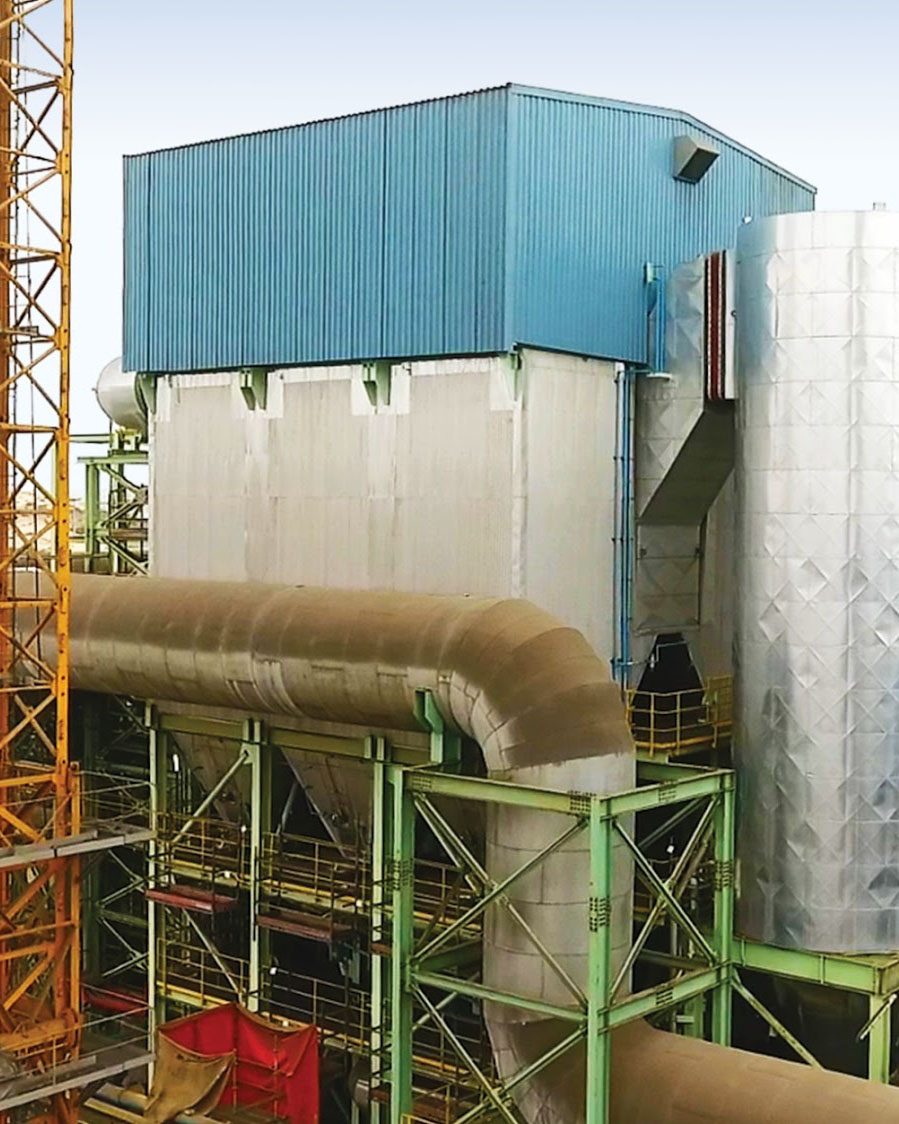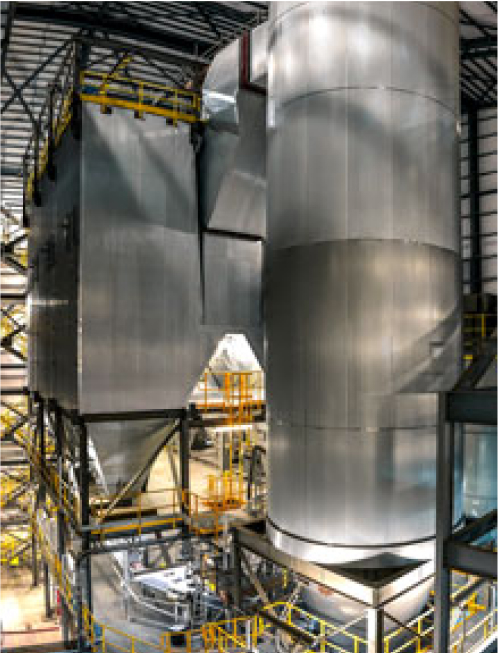Reverse Air Dust Collectors
LDX Solutions has grown from being a leader in portable reverse air dust collectors to a company that now provides a host of solutions for particulate matter. With our comprehensive product line & over 75 years in Air Pollution Control (APC), LDX Solutions has the expertise to bring uniquely valued solutions to any situation.
- Dustex® Pulse Jet Fabric Filter
- Geoenergy® E-Tube® Wet ESP (Electrostatic Precipitator)
- DustexTM ST Series of high efficiency single tube cyclones
- DustexTM PC Series of heavy duty primary pre-cleaner cyclones
- DustexTM ST-10 Series of steel high efficiency multiple tube cyclones
- DustexTM M-40A cast aluminum multi-clone cyclone
- DustexTM series of cast iron multi-clone cyclones

Wet ESP at a Biomass Plant in Arkansas
Primary Markets Served
- Incinerators (hazardous waste, sewage sludge)
- Multiple Hearth Furnaces
- Metallurgical Smelters and Roasters
- Sulfuric Acid Plants, Sulfuric Acid Mist (SAM) Removal
- Wood Dryers Including: oriented strand board (OSB), medium density fiber Board (MDF), particle board (PB), industrial wood pellets
- Panel Board Press Vents
- Insulation Manufacturing (forming curing, spinning wool chamber, melter exhaust, gutter exhaust)
- Industrial Boilers: multi-fuel fired, wood fired, hog fuel fired, tire derived fuel (TDF), fuel oil fired
- Food Products including French fry plants
- Tire Manufacturing
- Blue Haze Abatement
- Refinery Fluid Catalytic Cracking Units
- Oil Field Sour Waste Gas Incineration
- Clean-up Downstream of Wet Scrubbers


LDX Product & Solutions for Particulate Matter Collection
Find out how LDX Solutions can Optimize your Industry
Further making us the best solution for your Particulate Matter Collection needs is our unparalleled service & life-cycle support. See how our Aftermarket team can keep you online & make you more profitable, regardless of the equipment you currently use.
